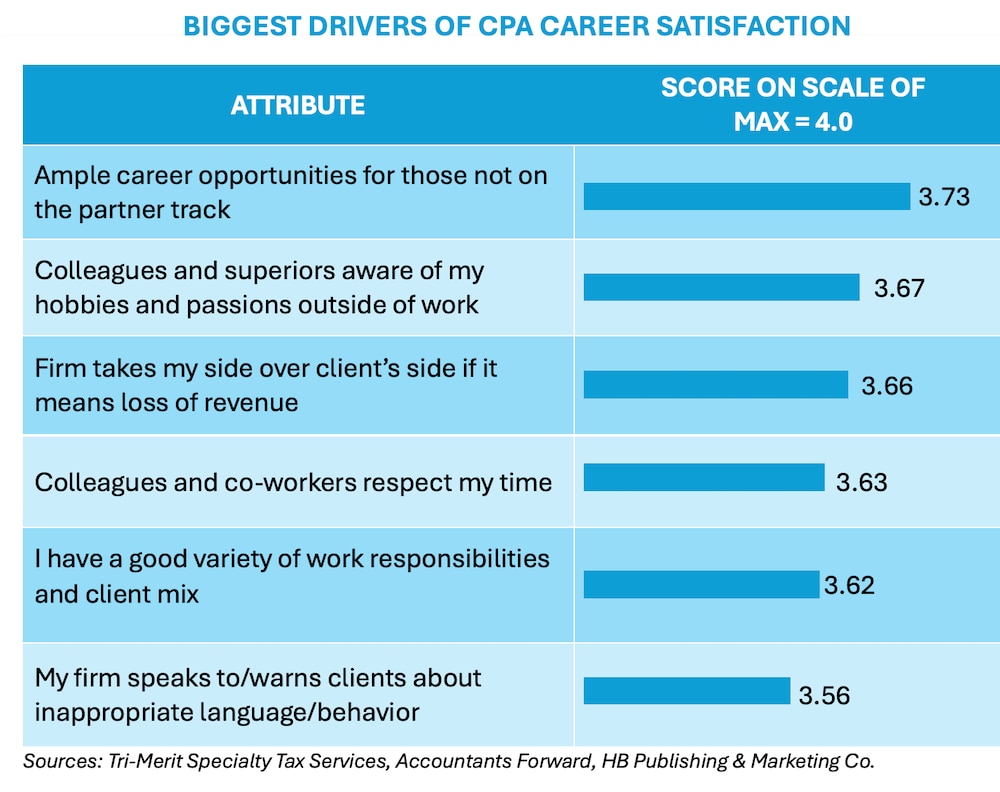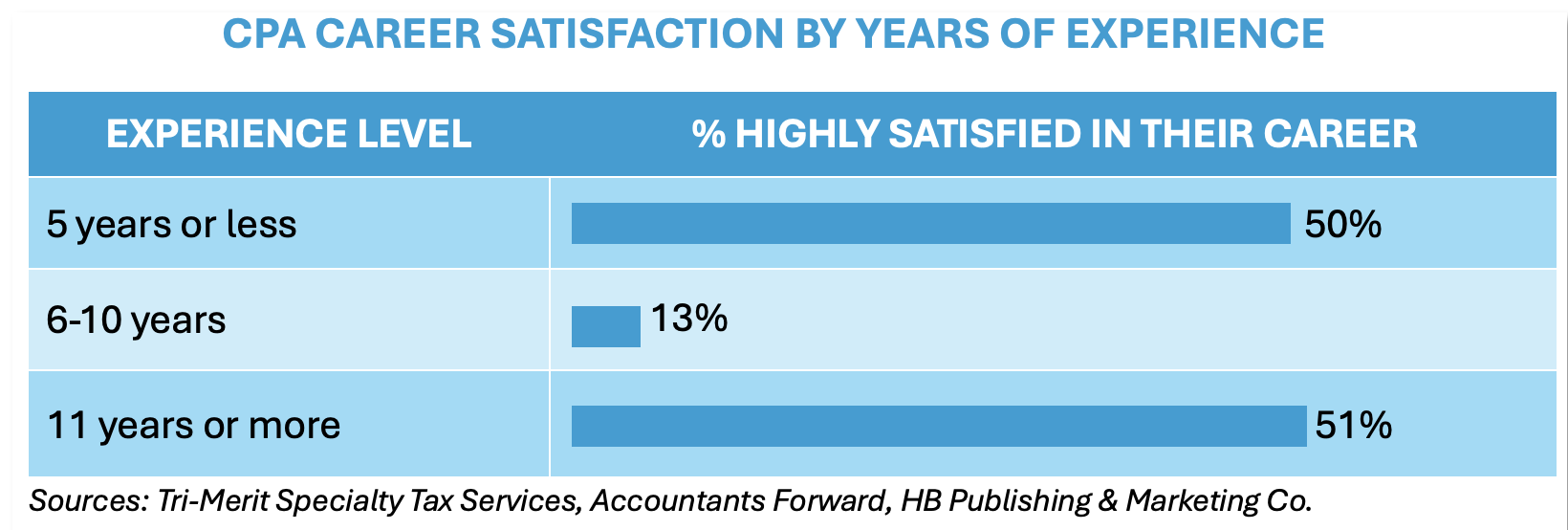It’s no secret that there is a significant talent shortage in our profession. New graduates are shying away from the profession, middle managers are burning out in droves, and partners are retiring earlier than ever before. However, new data suggests that accountants are not necessarily quitting their jobs and the profession because of long hours, demanding clients, constant deadline pressure, and inadequate pay.
According to our firm’s annual CPA Career Satisfaction Survey* conducted in association with Accountants Forward and HB Publishing & Marketing Company, there are plenty of CPAs and accountants working 60-plus hours a week who are “highly satisfied” in their careers. Likewise, there are plenty more working less than 40 hours per week who are feeling dissatisfied in their careers.
So if it’s not about long hours, then what about stress? There are also plenty of highly satisfied accountants who think their jobs are “more stressful” than their professional peers’ jobs. Further, there are plenty of highly satisfied accountants who don’t think they’re being paid as well as their peers in other firms and other professions.
So what gives?
“A common narrative is that accountants are underpaid compared to their peers and comparable careers,” said survey co-author Seth Fineberg, editor of Accountants Forward. “While other surveys show this may be the cause, our survey found that only one-third of accountants felt underpaid.”
What is keeping staff unsatisfied? According to Fineberg, the drivers tend to fall into one of four buckets:
- Lack of support from their firm.
- Mental and physical health issues that are work-related.
- Lack of positive work culture.
- Limited variety of work responsibilities and client mix.
On the flip side, our research found that career satisfaction seems to be driven by having interesting and varied work assignments, and by working for firms that have their employees’ backs when working with difficult clients. Career satisfaction also seems to rise for accountants working at firms that provide lots of career opportunities for staff not on the non-partner track, and for firms that make mental health resources readily available without any stigma. We also found that accountants at all stages of their careers were likely to remain in the profession if they feel coworkers and clients respect their time and work-life boundaries, and if they work at firms in which their colleagues and superiors know their hobbies and passions outside of the office.






